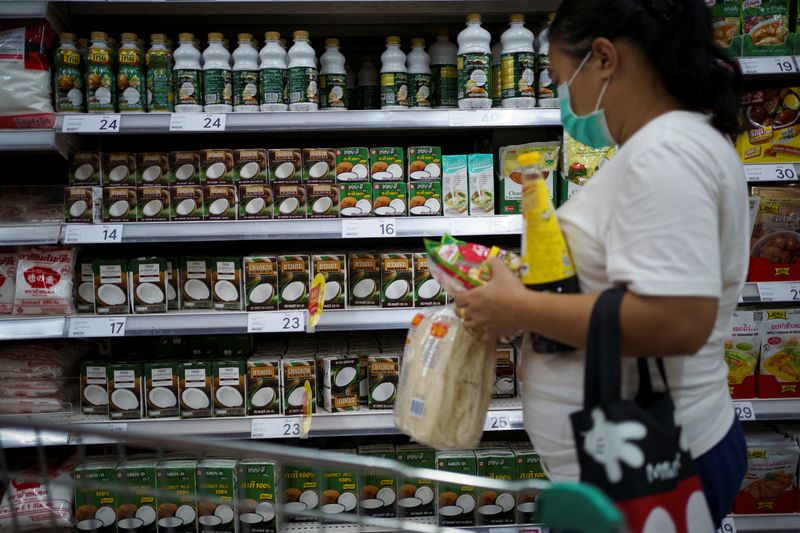By Karen Lema and Neil Jerome Morales
(Reuters) - Growth in East Asia and the Pacific this year will likely be slower than previously thought, the World Bank said on Thursday, as many countries in the region grapple with spikes in COVID-19 cases, new variants and vaccine supply constraints.
The East Asia and Pacific region, excluding China, is expected to grow 4% this year, World Bank President David Malpass said, down from a 4.4% forecast in March, with countries like conflict-torn Myanmar facing a deeper-than-expected slump.
Including China, which the global lender said will likely grow 8.5% in 2021, the region is expected to expand by 7.7% this year, faster than a 7.4% projection made in March, Malpass told a streamed news conference.
The speed by which nations could roll out vaccines remained a risk to the outlook, with many countries in the region unlikely to be able to fully vaccinate their population until 2024, Malpass said.
"The immediate priority for developing countries is widespread access to COVID-19 vaccines that match their deployment programmes," Malpass said.
The World Bank chief said he is concerned about developing nations falling behind in what has become a two-speed recovery with advanced economies posting a stronger rebound as more of their people get fully vaccinated.
"This is the reason why we have a major focus on expanding the reach of vaccines," said Malpass, who earlier this month announced the bank was raising financing for COVID-19 vaccine purchases and deployment to $20 billion from its previous target of $12 billion.
Malpass again urged advanced economies to give up excess doses of COVID-19 vaccines for developing countries which are facing greater needs.

Unlike countries like Britain and Germany which are preparing to remove most remaining restrictions, many in the region are reimposing targeted lockdowns to arrest a surge in cases and control the spread of more contagious variants.
The worsening COVID-19 crisis in Myanmar, which has been in turmoil since its military took power in a coup on Feb. 1, could push its economy into a "bigger contraction" this year, Malpass said. The World Bank forecast a 10% slump in Myanmar's economy in March.